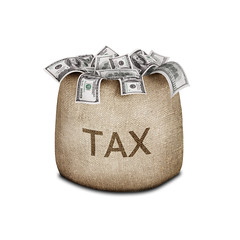| 12525798598 | War of 1812 | (1812-1815): fought b/w US and Britain largely over issues of trade and impressment. Ended in relative draw, but showed the US willingness to fight for their beliefs and earned respect from the European nations. "2nd war for independence." |  | 0 |
| 12525798599 | Battle of New Orleans | Battle won by the US and Andrew Jackson. Was a decisive win for the United States in the War of 1812. |  | 1 |
| 12525798600 | Congress of Vienna | (1814-1815): Convention of major European powers to redraw the boundaries of continental Europe after the defeat of Napoleonic France. |  | 2 |
| 12525798601 | Treaty of Ghent | (1815): Ended the War of 1812 in a virtual draw, restoring prewar borders but failing to address and of the grievances that first brought America into the war. |  | 3 |
| 12525798602 | Hartford Convention | (1814-1815): convention of Federalists from 5 New England states who opposed the War of 1812 and resented the strength of Southern and Western interests in Congress and in the White House. |  | 4 |
| 12525798604 | Tariff of 1816 | First protective tariff in US History, created primarily to shield New England manufacturers from the inflow of British goods after the War of 1812. |  | 5 |
| 12525798605 | American System | (1820s): Henry Clay's three pronged system to promote American industry. Clay advocated a strong banking system, a protective tariff, and a federally funded transportation network. |  | 6 |
| 12525798606 | The Era of Good Feelings | (1816-1824): Popular name for the period of one-party, Republican, rule during James Madison's presidency. The term obscures bitter conflicts over internal improvements, slavery, and the national bank. |  | 7 |
| 12525798607 | The Panic of 1819 | severe financial crisis brought on primarily by the efforts of the Bank of the United States to curb over-speculation on western lands. It disproportionally affected the poorer classes, especially in the West, sowing the seeds of Jacksonian Democracy. |  | 8 |
| 12525798608 | Land act of 1820 | Fueled the settlement of the Northwest and Missouri territories by lowering the price of public land. Also prohibited the purchase of federal acreage on credit, thereby eliminating on of the causes of the Panic of 1819. |  | 9 |
| 12525798609 | Tallmadge Amendment | (1819): Failed proposal to prohibit the importation of slaves into Missouri territory and pave the way for gradual emancipation. Southerners opposed this, which they perceived as a threat to the sectional balance between the North and the South. |  | 10 |
| 12525798611 | The Missouri Compromise | (1820): Allowed Missouri to enter as a slave state but preserved the balance between North and South by carving free-soil Maine out of the Massachusetts and prohibiting slavery from territories acquired in the Louisiana Purchase, north of the line 36.30. |  | 11 |
| 12525798613 | Loose construction | idea of using the elastic clause as a way of interpreting the constitution |  | 12 |
| 12525798619 | Florida Purchase Territory (Adams-Onis Treaty) | (1819): Under the agreement, Spain ceded Florida to the US, which, in exchange, abandoned its claims to Texas. |  | 13 |
| 12525798620 | Monroe Doctrine | Statement delivered by President James Monroe, warning European powers to refrain from seeking any new territories in the Americas. The US largely lacked the power to back up the pronouncement, which was actually enforced by the British, who sought free access to Latin American markets. |  | 14 |
| 12525798623 | Francis Scott Key | Author and lawyer who composed the "Star Spangled Banner", our national anthem, while observing the bombardment of Fort McHenry from the deck of a British ship where he was detained. |  | 15 |
| 12525798624 | James Monroe | Revolutionary war soldier, statesman, and 5th president. As president, he supported protective tariffs, and a national bank, but maintained a Jeffersonian opposition to federally funded improvements. Though he sought to transcend partisanship, even undertaking a goodwill tour of the states in 1817, his presidency was rocked by partisan and sectional conflicts. |  | 16 |
| 12525798625 | John Marshall | Supreme Court Chief Justice who expanded the power of both the Supreme Court and the National Government |  | 17 |
AP US History: American Pageant Chapter 12 Flashcards
Primary tabs
Need Help?
We hope your visit has been a productive one. If you're having any problems, or would like to give some feedback, we'd love to hear from you.
For general help, questions, and suggestions, try our dedicated support forums.
If you need to contact the Course-Notes.Org web experience team, please use our contact form.
Need Notes?
While we strive to provide the most comprehensive notes for as many high school textbooks as possible, there are certainly going to be some that we miss. Drop us a note and let us know which textbooks you need. Be sure to include which edition of the textbook you are using! If we see enough demand, we'll do whatever we can to get those notes up on the site for you!

